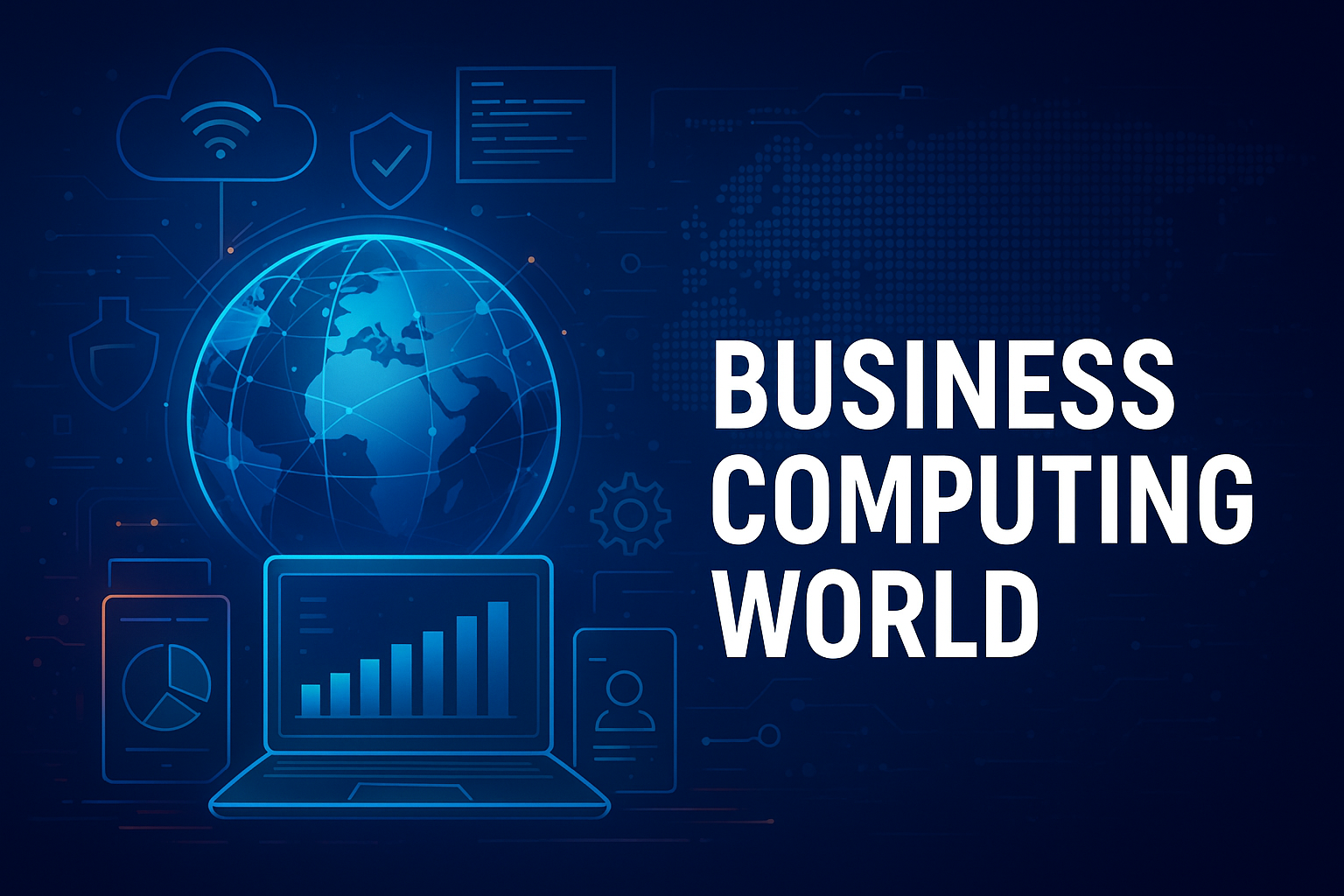The business computing world has become one of the most influential forces shaping modern enterprises. In a rapidly changing digital environment, businesses depend on advanced computing solutions to drive efficiency, innovation, and competitiveness. It is no longer just about owning computers or installing software; instead, it is about embracing an interconnected ecosystem of cloud services, artificial intelligence, data analytics, and cybersecurity that powers every aspect of modern business operations.
For many organizations, the business computing world is the foundation of their transformation journey. From small startups to multinational corporations, companies are rethinking their strategies to align technology with business objectives. This alignment has become the difference between thriving in the digital economy and falling behind competitors.
The Evolution of Business Computing World
Decades ago, computing in business meant large mainframes, data storage rooms, and manual data entry. These systems were expensive, limited in scope, and accessible only to a handful of industries. With the invention of the personal computer in the late 20th century, the business computing world expanded significantly. Suddenly, even small businesses could adopt technology to improve productivity.
The 1990s brought the internet, revolutionizing communication, marketing, and commerce. Businesses entered the digital marketplace, and e-commerce became a global trend. By the 2000s, cloud computing began transforming how companies accessed technology, allowing them to reduce infrastructure costs while enjoying greater scalability.
Today, the business computing world is in a state of constant evolution. With advancements in AI, machine learning, blockchain, and 5G, businesses are no longer limited by geography, data storage, or traditional models of operation. Instead, they are empowered to innovate at unprecedented speed.
Core Elements Shaping the Business Computing World
Cloud Computing as the Backbone
Cloud computing has become the backbone of the business computing world. Companies no longer need to invest in heavy on-premises servers; instead, they can access powerful computing resources through platforms like Amazon Web Services (AWS), Microsoft Azure, and Google Cloud. Cloud solutions provide flexibility, cost savings, and the ability to scale rapidly based on business needs.
Artificial Intelligence and Automation
Artificial intelligence (AI) is reshaping industries across the globe. In the business computing world, AI enhances decision-making, optimizes customer interactions, and automates routine tasks. From AI chatbots in customer service to predictive analytics in supply chain management, businesses are adopting AI-driven tools to streamline operations and create better user experiences.
Cybersecurity as a Priority
With the growth of digital business comes increased vulnerability to cyber threats. The business computing world emphasizes cybersecurity as a vital element of success. Companies are investing in firewalls, encryption, biometric authentication, and threat intelligence platforms to secure sensitive data. Trust is a cornerstone of business relationships, and cybersecurity ensures that companies can protect both their internal systems and customer information.
Data Analytics for Smarter Decisions
Data has become one of the most valuable resources in the world. In the business computing world, organizations rely on data analytics to interpret consumer behavior, optimize business strategies, and identify new opportunities. Big data and predictive analytics help companies make evidence-based decisions rather than relying solely on assumptions.
Remote Work and Collaboration Tools
The global shift to remote and hybrid work has highlighted the importance of collaboration tools. The business computing world has adapted by providing digital platforms such as Microsoft Teams, Slack, and Zoom, which allow employees to stay connected regardless of physical location. This trend has also accelerated the adoption of cloud-based project management tools and secure file-sharing systems.
The Importance of Business Computing World in Digital Transformation
Digital transformation is no longer optional—it is essential for survival in the competitive marketplace. The business computing world plays a central role in helping organizations undergo this transformation. Companies are adopting advanced enterprise resource planning (ERP) systems, customer relationship management (CRM) platforms, and AI-powered solutions to modernize their operations.
Digital transformation also involves rethinking traditional models of customer service, product delivery, and business expansion. Companies that embrace new technologies are better equipped to respond to market changes, enhance customer satisfaction, and increase efficiency.
Challenges Facing the Business Computing World
While the opportunities are immense, the business computing world also faces challenges that businesses must overcome:
-
Cybersecurity threats: With increasing reliance on digital systems, companies face growing risks of hacking, data breaches, and ransomware attacks.
-
Cost of implementation: Adopting advanced technologies such as AI and blockchain can be costly, especially for small and medium-sized enterprises.
-
Rapid technological changes: Businesses must adapt quickly to new innovations or risk falling behind.
-
Workforce skill gaps: Many organizations struggle to find skilled professionals with expertise in emerging technologies.
These challenges require companies to adopt strategic planning, continuous employee training, and long-term investments in infrastructure and innovation.
Future Trends in the Business Computing World
Rise of Quantum Computing
Quantum computing is expected to revolutionize industries by solving complex problems beyond the capacity of traditional systems. It could transform sectors such as finance, healthcare, and logistics, making it a vital trend in the future of the business computing world.
Expansion of 5G Connectivity
The rollout of 5G networks will boost the speed and efficiency of digital applications, enabling businesses to adopt more advanced IoT solutions, real-time communication, and immersive technologies like augmented reality (AR) and virtual reality (VR).
Sustainable and Green IT Practices
As sustainability becomes a global priority, businesses are adopting eco-friendly computing practices. Energy-efficient data centers, green cloud solutions, and responsible e-waste management are gaining importance in the business computing world.
Blockchain Technology
Blockchain is extending beyond cryptocurrency into areas such as supply chain management, digital contracts, and secure financial transactions. In the business computing world, blockchain offers transparency, security, and accountability.
Why the Business Computing World Matters for Every Enterprise
Every business, regardless of size or industry, is impacted by the business computing world. Startups use digital tools to scale quickly, while established enterprises rely on technology to manage global operations. Even local businesses are adopting e-commerce platforms, online payment systems, and digital marketing strategies to remain relevant.
The business computing world levels the playing field by providing access to tools and resources that empower businesses to compete on a global scale. It ensures efficiency, reduces costs, and drives innovation that creates lasting growth.
Read also: Kellogg Innovation Network: A Global Platform for Collaboration and Breakthrough Ideas
Conclusion
The business computing world is not just about technology—it is about transformation, innovation, and future growth. From cloud computing and AI to cybersecurity and data-driven insights, it encompasses the tools and strategies that businesses need to succeed in the digital era. While challenges such as cybersecurity risks and rapid technology changes remain, the opportunities are far greater.
As we move into the future, the business computing world will continue to shape industries, redefine customer experiences, and create endless possibilities for enterprises worldwide. Companies that embrace this evolving landscape will not only survive but thrive in the digital age.


